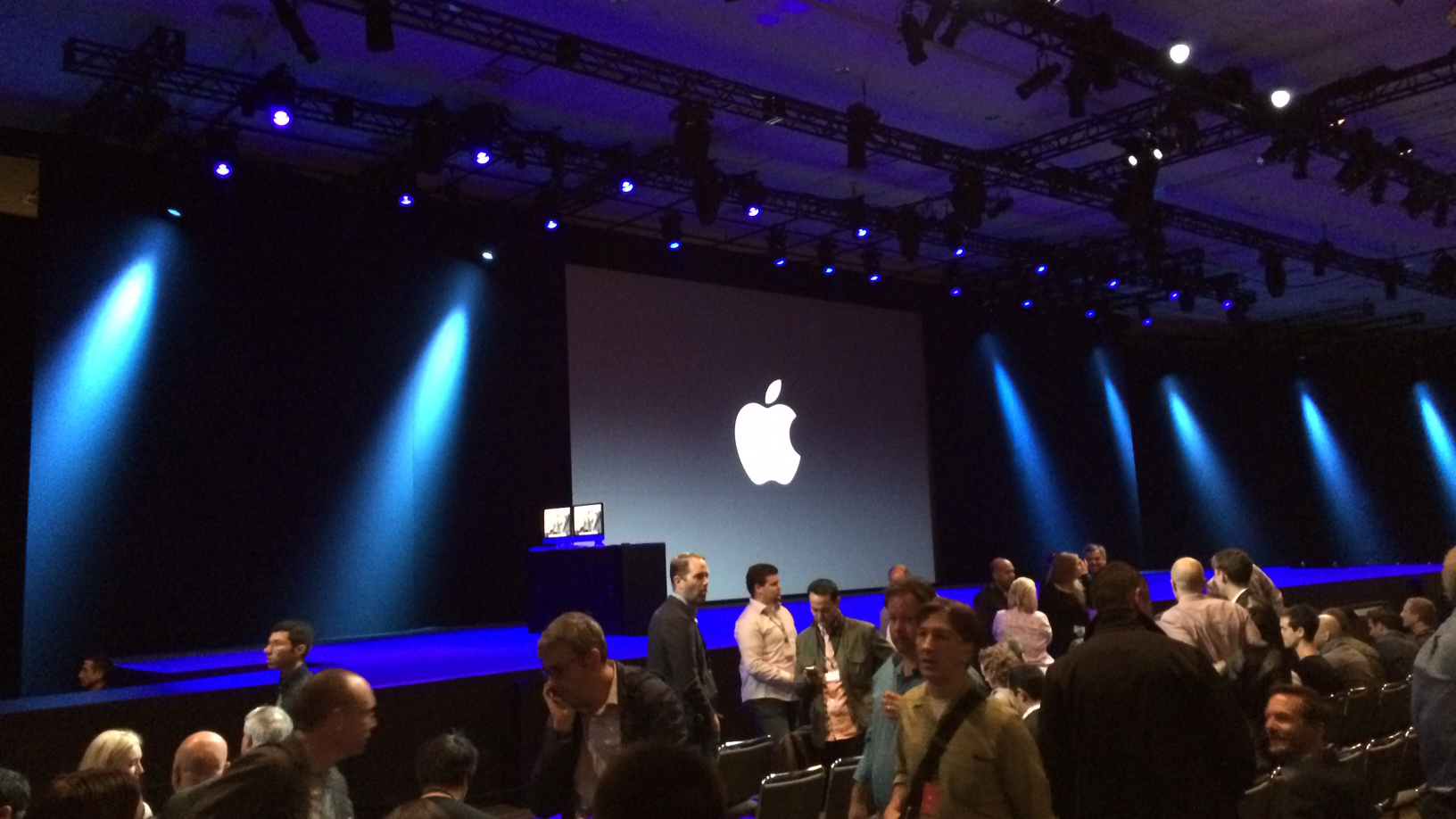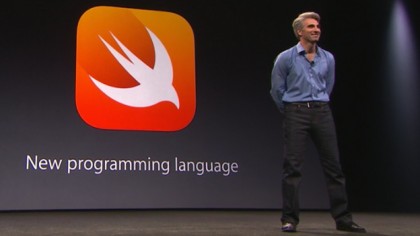Apple wants the iPhone to be the only phone you'll ever need
The walled garden comes down

Sign up for breaking news, reviews, opinion, top tech deals, and more.
You are now subscribed
Your newsletter sign-up was successful
It seems a bit obvious to say that the Worldwide Developers Conference should be primarily about developers, but today Apple gave the thousands of expectant attendees more than they bargained for.
The theme at WWDC might have seemed fragmented as it unfolded - lots of different new services on offer, and many different paths being walked down - but when you step back and put it all together you realize: Apple wants your iPhone to be the absolute center of your home and family life.
Imagine Apple's ideal house next year: a home that's got digital locks, garage doors and thermostat all connected into the iOS system using HomeKit.
An iPhone 6 for either parent with the TouchID sensor that's now been opened up to a range of new applications. Kids with their iPads, iPods and iPhones all linked to one central Family Share account.
Suddenly you've got not just one, but six people locked into the Apple ecosystem. Want to get into your house? Better have an iPhone, or you're going to be throwing a Galaxy phone through the window to break in.
Fewer broken pieces
Of course, the trick here is getting enough people to fork out the cash needed to create this kind of house, and it's not going to be cheap.
Apple doesn't quite have the market share it needs to achieve this kind of dominance easily (although it's not far off) which helps explain why Tim Cook was so keen to play up the fragmented nature of Apple's competitors.
Sign up for breaking news, reviews, opinion, top tech deals, and more.
He highlighted how many more users had upgraded to the new version of iOS or OS X, with 40 million upgrades to Mavericks and 90% of iOS users on the new version of the platform.
In comparison, Microsoft has only 14% of users on Windows 8, and Android 9% on KitKat. It's telling that numbers weren't involved in the presentation - it's reported that 200 million copies of Windows 8 have been sold already, so Apple was really highlighting the potential Microsoft needs to exploit.
Perhaps it's a different story with Android, and that's why Google is working so hard to unify the variety of operators using its platform.
You'll see 'Powered by Android' on start up screens for new devices from now on, and if Android Silver comes to pass, we'll have a range of high-end phones which will be as next-gen ready as Apple's iPhone range is.
But Apple did have one little extra treat that might help its cause in persuading whole families to switch to its new integrated home vision, and it came towards the end of the conference.

The biggest cheer of the keynote was reserved for the announcement of Swift, Apple's own programming language, to make it easier and quicker to create high-quality apps for its platform.
This means fewer mistakes, more creativity and a greater number of developers sticking around who might have been swayed by the larger number of Android devices to cater for.
And the addition of Metal, Apple's new layer between games and iPhone/iPad hardware that will allow near-console quality gaming on these portable devices, also got a massive whoop as it was announced - developers were genuinely enthusiastic about having these new tools to play with.
A couple of guys behind me were seemingly dazed by what they'd seen, claiming this was a big (and useful) to the process … admittedly, they were in a room full of Apple fans, but there was a sense that Cook's team had created something that would again push mobile device performance forward.
The Apple home of the future might not be something that appears in many houses for the foreseeable future, as it will require a lot of investment in a new ecosystem.
But if you're a developer, suddenly the locked-down iOS system seems wide open: cameras, TouchID, gaming, health and keyboards have suddenly become fair game, and in doing so Apple has done enough to mirror the popular features of Android and gives it a great platform to launch the iPhone 6 on.

Gareth has been part of the consumer technology world in a career spanning three decades. He started life as a staff writer on the fledgling TechRadar, and has grew with the site (primarily as phones, tablets and wearables editor) until becoming Global Editor in Chief in 2018. Gareth has written over 4,000 articles for TechRadar, has contributed expert insight to a number of other publications, chaired panels on zeitgeist technologies, presented at the Gadget Show Live as well as representing the brand on TV and radio for multiple channels including Sky, BBC, ITV and Al-Jazeera. Passionate about fitness, he can bore anyone rigid about stress management, sleep tracking, heart rate variance as well as bemoaning something about the latest iPhone, Galaxy or OLED TV.